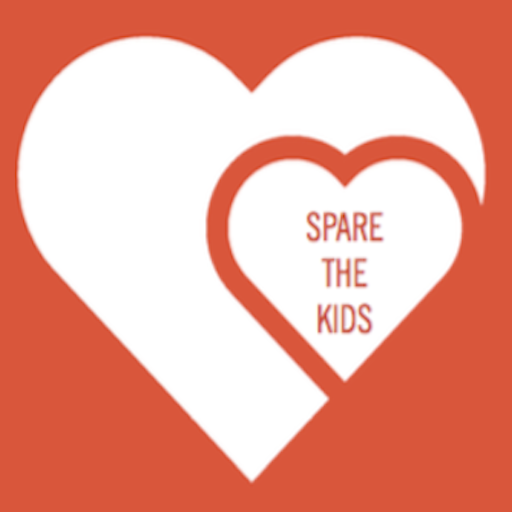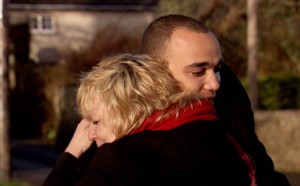Recently, I met with a group of adult adoptees who were torn about searching for their biological parents. Since I am an adoptee who was eventually reunited with my birth relatives, they asked me to share my experience since there aren’t many support groups or professionals who help adoptees manage their expectations during the highly emotional reunion process.
Some adoptees in the group said they were hesitant about searching for their birth parents because they didn’t want to appear disloyal to their adoptive parents whom they love deeply. Others feared they’d find out horrible information or risk being rejected by their birth relatives.
A few people in the group said they didn’t want an ongoing relationship, but they were curious about genetic and medical information and the backstory of the events that led up to their relinquishment. Someone in the group asked me if I fantasized about my birth parents when I was a child.
“All the time,” I said.
Who are they? What do they look like? Do I look like them? Where are they now? What do they do for a living? Why did they give me up? Will I ever meet them? Are they even alive?
These questions occupied my thoughts as a girl growing up in a house with an abusive adoptive mother and a feckless adoptive father who didn’t protect me. My adoptive parents did not accommodate my curiosity about my family of origin. There was no room for questions or open and honest discussion. My adoptive parents took my questions as signs of disrespect and ungratefulness.
“You’re lucky that somebody took you in and gave you a good home,” my adoptive mother used to say. “If your real mother wanted you she wouldn’t have given you up.”
So, as I navigated each developmental stage of childhood, particularly the stormy period of adolescence when issues of identity intensify, my lost connection to my birth family made me feel incomplete, worthless and unlovable. To get whole, I felt I had to find out who I was and where I had come from. Knowing my birth story would give me a sense of continuity instead of feeling like a turnip that fell off the back of a truck.
But the law said that I couldn’t search for my birth relatives until I became an adult. The details of my birth and adoption remained a state secret. That meant that I’d spend many years yearning and fantasizing about a beautiful mother with a soft voice and loving hands, and a tall father with strong protective arms. I imagined they had a big house with a room waiting for my return. They would look like the Huxtables and they would never treat me the way my adoptive parents did.
Meeting my “real” parents meant that I could erase the stain and shame of being an adoptee and a victim of child abuse. I told the group that if loving people had adopted me then my longings for “home” might not have been as intense.
When I was finally reunited with my birth relatives, my fantasies did not match the reality. I did not relate well to the people with whom I shared blood ties. We had different values and incongruent expectations about the reunion. I was disappointed because my fantasies had allowed me to create expectations that could not be met. In my girlish fantasies there was no room for dysfunction, secrets, lies, betrayal, or rejection.
No one warned me that adoption is almost always the result of some kind of loss or tragedy. And no one told me that the tortured backstory of my adoption had remained buried in the day-to-day lives of my relatives for years until I came back looking for answers.
I expected my birth family, just as I had expected my adoptive parents, to be open and honest with me. To tell me everything. Hold back nothing. I thought that my reunion would help me strengthen the tenuous hold I had on my identity. Bring me closure. Help me heal from my childhood from hell. But ultimately, my reemergence brought up bad memories and emotions for everyone involved.
It took me over 15 years to finally accept that my obsessive questions and even my physical presence stirred up emotions in my birth relatives. My face, which looks like my mother’s face, reminded them of her death, our family’s other tragedies, pain, losses, grief, shame, secrets, lies and even their own personal failures. This reality was a far cry from the fantasy I had of being welcomed into warm arms by people who would promise to keep me this time around.
Though my reunion with my birth family was a disaster, this adoptee’s fantasies were not all bad.
I told the group that my fantasies helped me survive child abuse. They gave me the drive to succeed, to be a good student and a disciplined athlete, to stay out of trouble, and to make something out of myself so that my birth parents would be proud if I ever found them. My fantasies helped me refuse to accept the lies that came from both sides of the adoption triad. My fantasies spurred me to always ask questions, to seek out the truth, to imagine an alternate vision for myself, and to get free from unhealthy cycles.
Ultimately, when I finally faced reality, I learned the two most important lessons of my life – I have the power to reconstruct myself, and, there is a difference between relatives and family. Not all adoption reunions end like mine. Good or bad, what you find will most likely mean an end to the unknown and torturous wondering. You can achieve peace if you can muster up the courage to take the journey, learn to manage your expectations, and check your fantasies at the door.
If you are an adoptee who is thinking about searching for your birth family, here are some helpful insights to keep in mind as you navigate the process . . .
1. Expect the unexpected. You will likely experience a range of emotions, from a sense of peace and the joy of seeing yourself reflected in people who look like you, to feelings of anger and grief about things that could have been. Some, all, or none of these may be your experience and they can each happen at different times in your journey. It may takes months or even years for you to integrate your relatives into your lives and vice versa.
2. Be honest without fear. Be sure to talk openly and honestly. If you need to take things slow, then say it. If there are questions you have, don’t be afraid to ask them. Don’t hold back for fear that the relationship will end. And don’t feel like you don’t have a right to know your birth family’s history. It is yours too. You didn’t just inherit their genes. You can only be free when you embrace the truths about the past. Even if you discover bad things that doesn’t mean that the past will hold you hostage. The secrets and lies will.
3. Take notes. Bring a camera. Keep a journal and write down your emotions. Talk with a therapist, close friends or relatives, and other adoptees who’ve been through the process. Your adoption reunion is not a journey that should be taken alone! You need healthy ways to process and release your emotions. Having someone you trust close by can help you not become blinded by emotions and the residue of child fantasies.
4. Let go of the secrets. If you decide to reunite with your birth family then this means that all parties have to be willing to let go of secrets, shame, and guilt. If people keep secrets then the potential joy, healing, and closure of the reunion will be thwarted. Expect that unveiling secrets can be painful and overwhelming for your birth relatives and for you.
5. It’s okay to be angry. Anger is part of the reunion process. It’s not necessarily a bad thing if you can get behind the anger – bad memories resurfacing, hurt, past pain, grief, loss, shame, insecurity, rejection, abandonment, and vulnerability. Birth parents and adoptees may find themselves getting in touch with what they missed over the years because of the lost connection. Don’t let your anger scare you into retreat.
6. Find balance. Your birth parents may want to rescue you because to them you are their baby even though you are now an adult. And sometimes the adoptee might want to rescue their birth parents. Your siblings may have intense reactions. They may feel left out or they may have fears about the new place you might take in their parents’ lives. Take things slowly. Don’t rush or think that you’re going to move right into your birth relatives’ lives like nothing happened.
7. Don’t overreact. The honeymoon period can be intense and overwhelming. Sometimes there’s daily contact between the adoptee and birth relatives. Any break in the communication may signal fear of rejection. Don’t overreact. All parties need time and space to process this life altering event.



Recent Comments